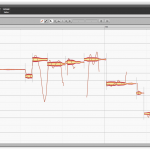Screening Prospective Engineers
One of the bigger, ongoing challenges I’ve seen with churches is in finding the right folks to mix on Sunday, and this doesn’t seem like it’s a big church or small church challenge, either. Big churches have trouble finding good staff guys and everyone is challenged in finding great volunteers.
In a lot of cases, I find part of the issue in this is a lot of churches want to bring in guys who are already there with mature mixing skills, and I get it. Sometimes you need to fill a hole, but years ago I remember reading a book or article that talked about hiring people who can rise into a position. I may be biased because part of my business these days is training audio engineers to get to the next level, but what most churches should probably be looking for are staff and volunteers with the potential to become great engineers.
But how do you know if someone has the potential?
One of the first things I often mention when I’m doing mixing workshops is mixing is NOT a technical discipline. Mixing is a craft. It’s an art. I would even say that mixing is a musical discipline, and that’s where there’s often a disconnect.
A lot of guys who get into live production do it because they like technology. They usually like music, too, but their passion is often putting things together and the gear and computers and electronics and gear gear gear. This isn’t necessarily a bad thing, though, because that work needs to get done. However, growing as an engineer requires some other skills and interests.
When I was on staff at North Point, we had a very deliberate structure to our audio team where everyone joined as an A2 doing mostly technical types of things. This gave them a familiarity with how things worked in our world and the expectations on our team. Behind the scenes, though, this offered myself and some of the veteran guys on our team time to figure out who really had the potential to grow into an engineer. Not a lot of churches, however, have the luxury to do this so I have a few things you can look for if you’re vetting engineers for potential.
Before I get into these, I want to stress the word potential. While these would be qualities I’d look for in any mix engineer, these qualities do not make someone an immediately useful engineer. They just show there might be potential worth exploring and developing.
1. Affinity for Music
Does your potential engineer have an affinity for music?
This might seem like a silly question to ask, but you would be surprised how many engineers I’ve met over the years who only listen to talk radio or podcasts and it often shows when they start mixing.
The best engineers I know are incredibly passionate about music. You don’t need someone who’s obsessed with music, but if they don’t like music they’re probably going to have a rough time mixing it.
Another thing I might ask in here is what kind of music has affected them on an emotional level and why. The answers aren’t as important so long as there is an answer. Music is the emotion we can’t put into words. It’s the extra bit that moves us from sheer poetry to an actual song. If someone has never been moved by music, again, it’s going to be hard for them to mix music that moves someone.
Now, on a side note, I’ve heard people whine about how music in church shouldn’t be this emotional wave that happens, but I don’t agree with that one bit. If we didn’t need the emotion, we wouldn’t need the music. We could just chant together and recite texts together, and as a former Catholic, I’ve been there and done that.
A bonus in this area is an affinity for the music your church does.
2. Basic Rhythm
Can they tap their feet to a song?
I believe musical instrument experience is a plus for mix engineers, but it’s not necessary. There does need to be a basic sense of musicality, though, and rhythm is the baseline for me.
This probably harkens back to elementary school for me. I still remember in 2nd and 3rd grade doing a simple activity that everyone enjoyed–well, at least I enjoyed it. Our music teacher would put on popular music and someone from our class would sit in front of the class and lead us in some kind of rhythm along with the song which at the time was often something off Michael Jackson’s Thriller or the Footloose soundtrack. They might tap on their knees or clap or just do something simple, and the entire class would follow along doing the same thing. It was really basic stuff, but I distinctly remember the encouragement my music teacher gave me when I would do this.
3. Basic Hearing Discernment
This gets a little tougher because a lot of this gets developed over time, but the idea is to see if there’s potential to hear details in things. There are two things I would probably look for. For starters, can they pick out any individual instruments in a song?
In college I took a class that was essentially Music Appreciation 101, and one of the assignments was to deconstruct music into the individual instruments that made up a recording. It was a pretty basic exercise for me, and I’d be lying if I said the class wasn’t a shameless attempt to bring my GPA up. You’d be surprised how many people struggle with this, though.
I think the vast majority of people really only hear the forest. They get the main melody and maybe a counter melody, but that’s about it. They don’t understand all the little trees or details that make up the forest. If you’re going to be a mix engineer, though, you need to be able to shift your focus between the forest and the trees. So I believe a good place to start with this is simple instrument identification in a song.
The other thing I’d want to find out is can they tell the difference between bright sounds and dark sounds. Is something warm or harsh? Is it muddy or clear? You can look at this as being able to tell the different between what the Treble knob and the Bass knob do on a simple stereo.
Again, this isn’t a particularly difficult skill for an engineer, but this is also baseline EQ. If someone can’t figure it out what to do when they have two fixed knobs, they’re going to have a hard time eventually wrapping their head around a modern console’s EQ and learning to zero in on specific frequency areas.
Of course, these aren’t the only things you should be looking for in a potential engineer. I would hope that it’s obvious you also need to do all the normal vetting to make sure someone is a fit for your particular team as well.
What are some of the things you look for in a potential engineer? Leave a comment below and let us know.


 Previous Post
Previous Post Next Post
Next Post


